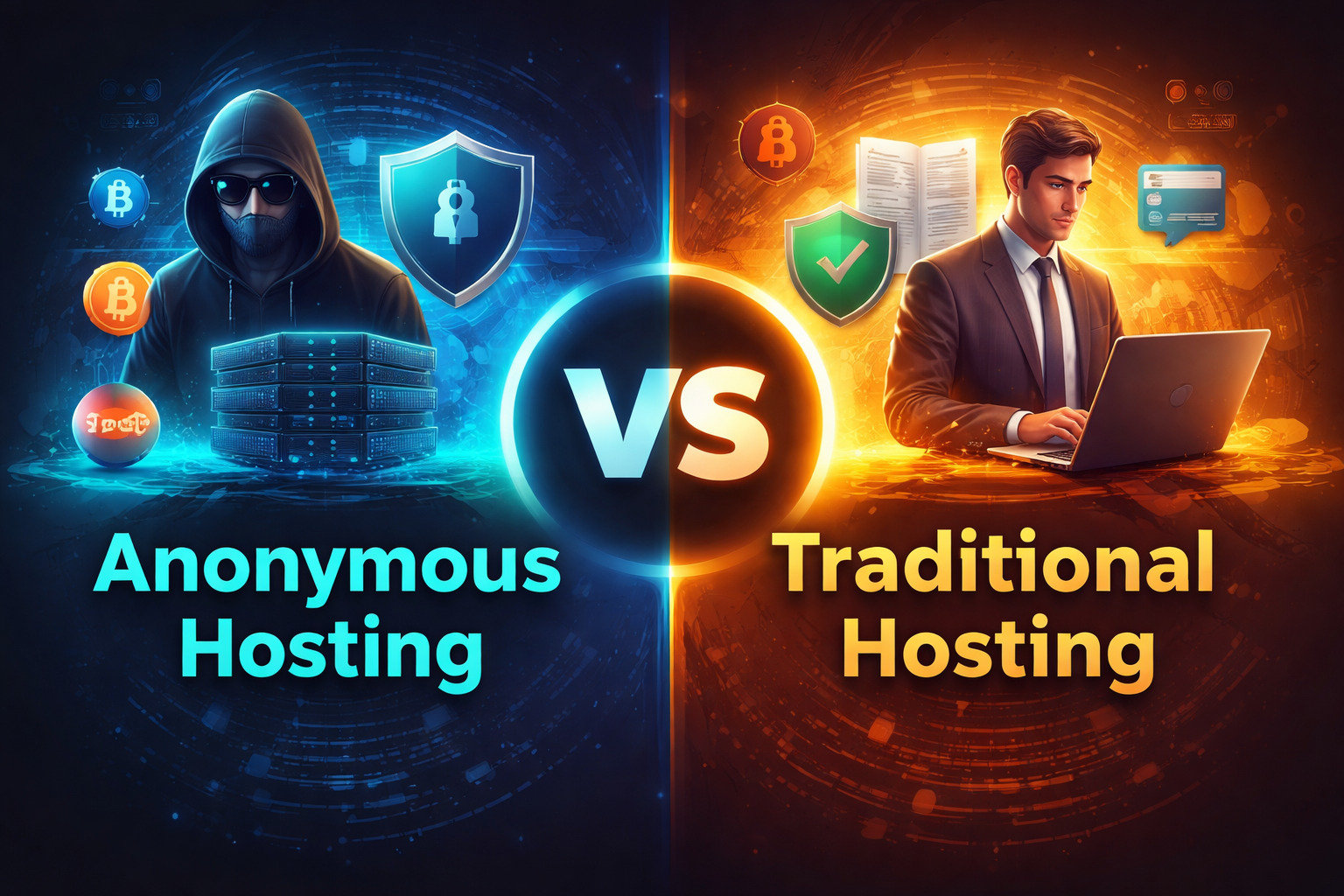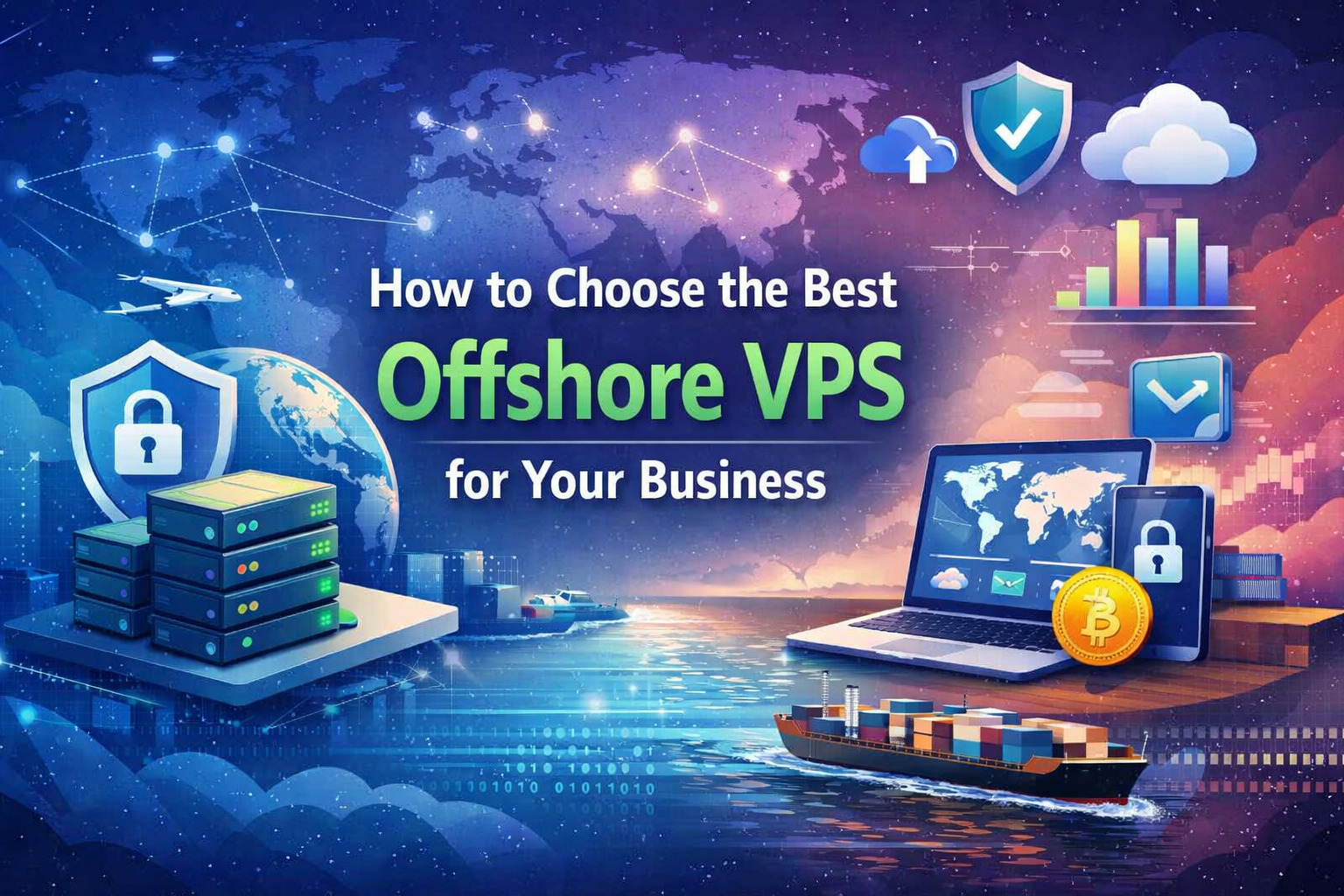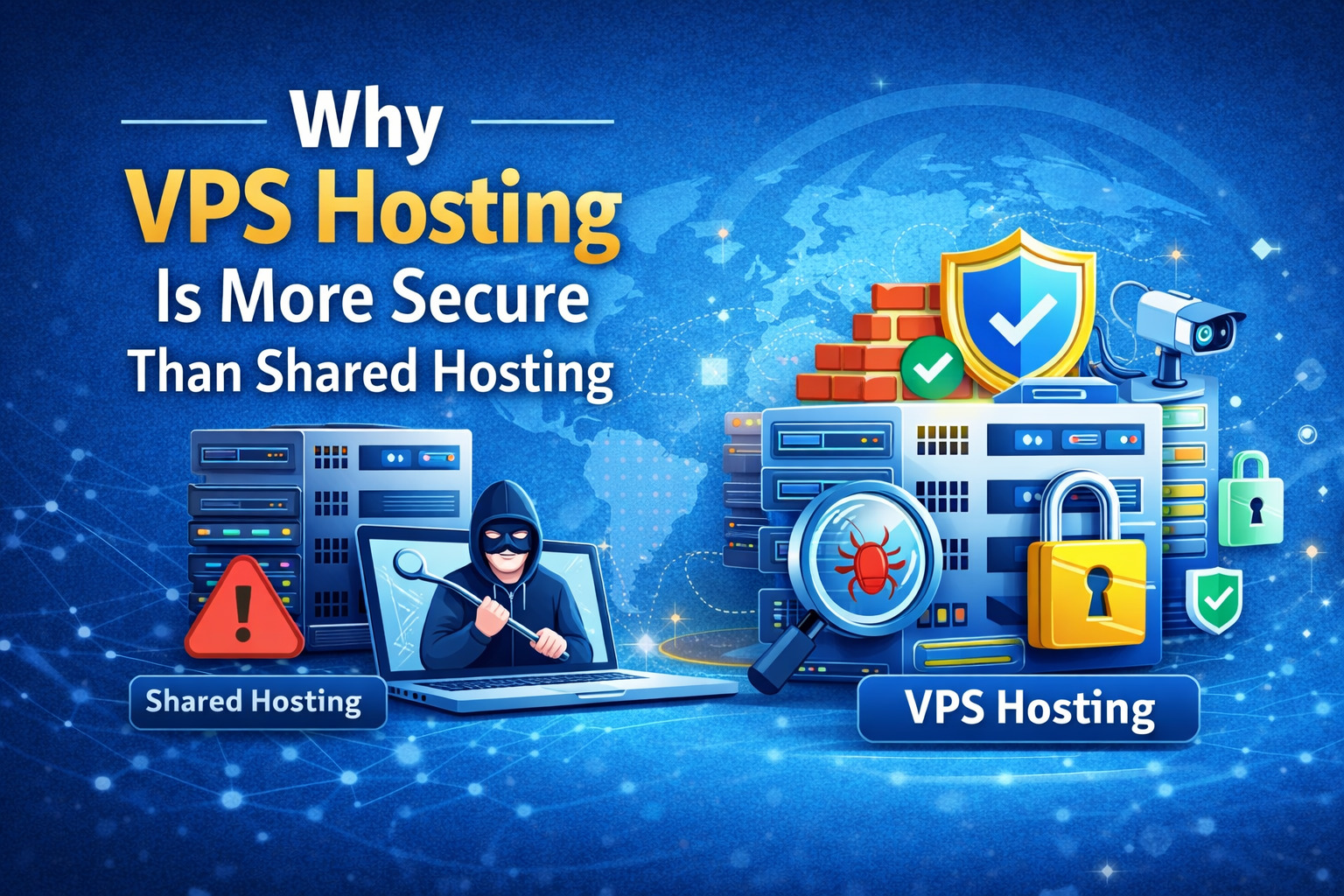Offshore Dedicated Servers: A Complete Guide for Businesses | LunarVPS
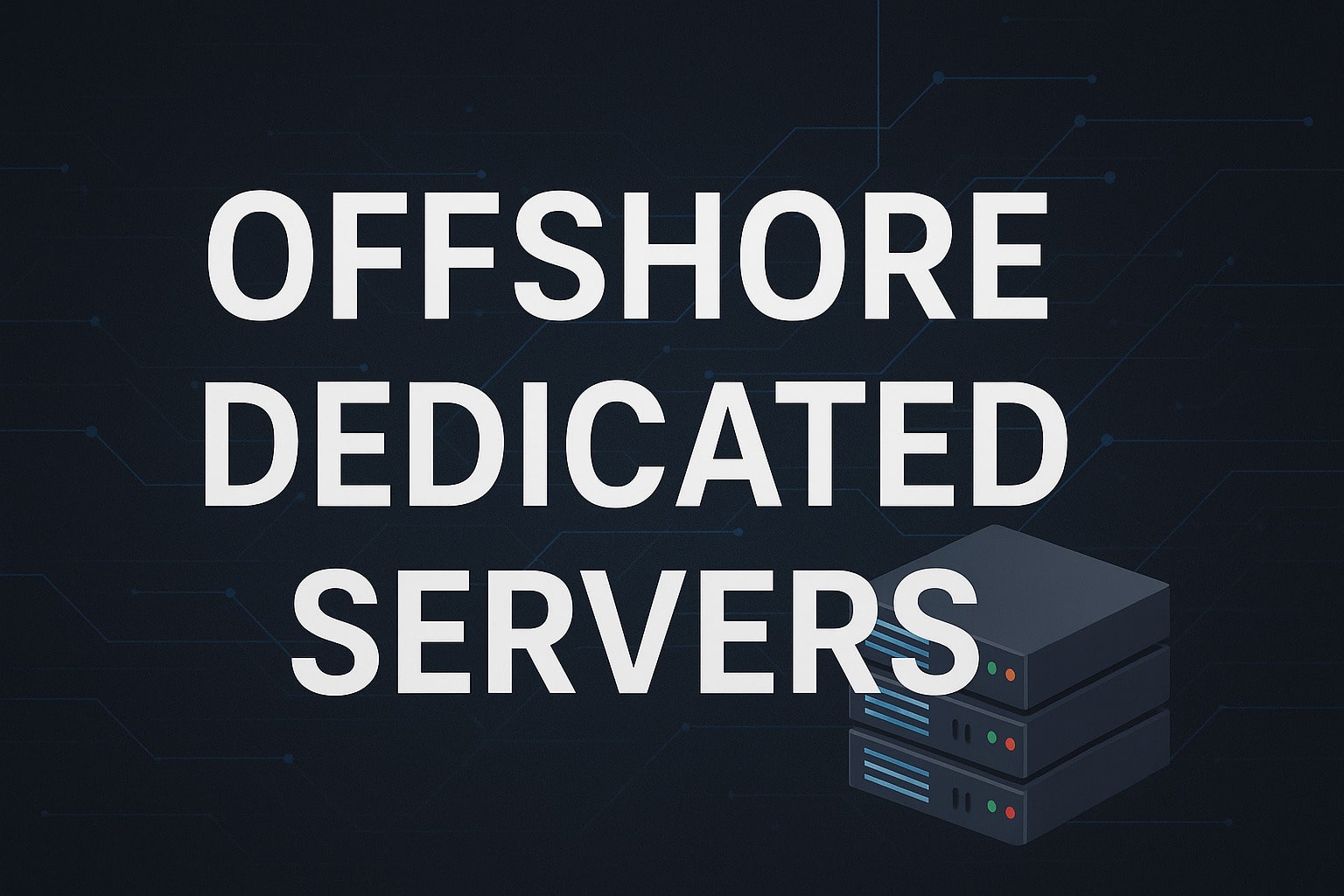
- November 3, 2025
- 0 Comments
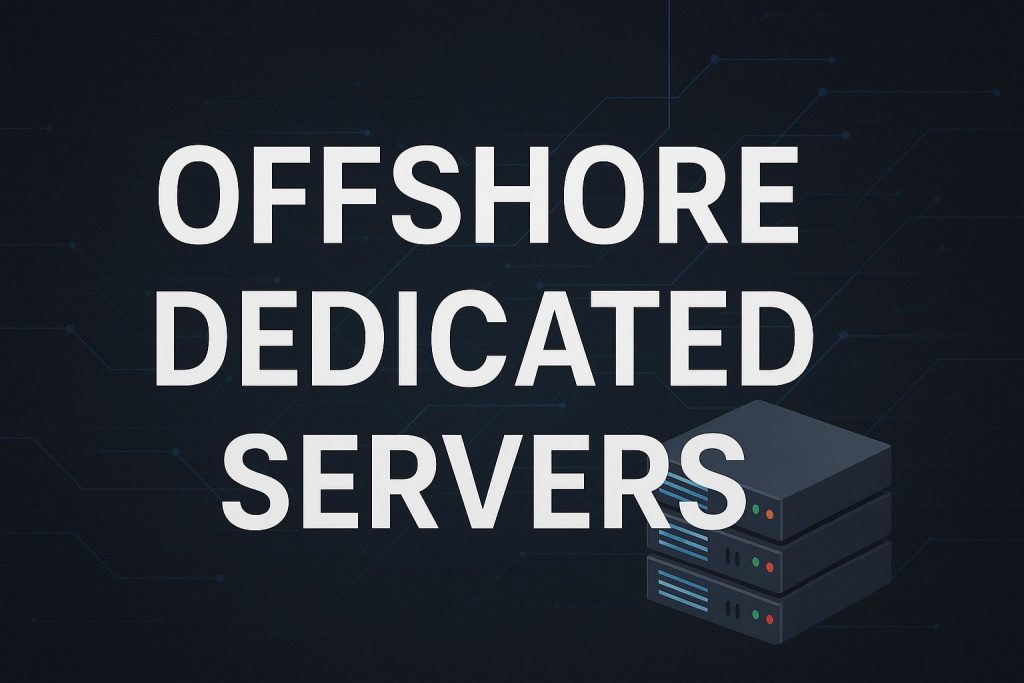
In the digital world, data isn’t just information — it’s one of your business’s most valuable assets. Where you choose to store that data can make a big difference in how safe it is, how fast your website runs, and who can access it.
That’s where offshore dedicated servers come in. They give you complete control over your hosting, stronger privacy, and a way to manage your online presence under a different set of data laws.
In this guide, we’ll explain what offshore dedicated servers are, how they work, why many companies use them, and what to look for when choosing one. We’ll also show how LunarVPS offers secure and powerful offshore dedicated servers in Switzerland and the Netherlands — two of the most privacy-friendly countries in the world.
What Is an Offshore Dedicated Server?
An offshore dedicated server is a physical server located in another country — different from where you or your business is based.
The word dedicated means you’re not sharing the server’s resources (CPU, RAM, or bandwidth) with anyone else. It’s all yours.
The word offshore simply means it’s hosted abroad — often chosen for better privacy, less government interference, or different legal rules.
At LunarVPS, we host offshore dedicated servers in:
- Switzerland — known for its strong privacy laws and political neutrality.
- The Netherlands — one of Europe’s top tech hubs with GDPR-backed data protection and high-speed connectivity.
These locations give you the power and peace of mind to run your online business securely and privately.
Offshore vs. Onshore Servers: What’s the Difference?
The main difference between offshore and onshore servers isn’t in the hardware — it’s in the jurisdiction, or the set of laws that apply to your data.
Here’s a simple comparison:
| Feature | Onshore Servers | Offshore Servers |
|---|---|---|
| Data Laws | Follow your country’s laws | Follow host country’s laws |
| Privacy | Depends on local privacy acts | Often stronger (e.g., GDPR, Swiss FADP) |
| Content Rules | May be subject to strict takedown laws | Often more flexible or “DMCA ignored” |
| Network Reach | Best for local audiences | Better for global reach |
| Main Benefit | Simplicity | Privacy, freedom, control |
So if your business deals with international users, sensitive data, or needs privacy from local oversight, offshore hosting can be a smart choice.
Why Businesses Choose Offshore Dedicated Servers
Different businesses use offshore servers for different reasons. Here are the most common and practical ones.
1. Stronger Data Privacy
Some countries — like Switzerland and the Netherlands — take privacy seriously.
- Switzerland’s Federal Act on Data Protection (FADP) ensures that data can’t be accessed without strong legal justification.
- The Netherlands, being part of the European Union, follows GDPR, one of the toughest privacy frameworks in the world.
This means hosting your data in these countries can give you more control and protection compared to many other locations.
2. Complete Control Over Your Server
A dedicated server gives you 100% control over your setup. You can:
- Choose your operating system (Linux, Windows, etc.)
- Install any software or control panel you like
- Set your own security policies and firewall rules
- Manage performance however you want
At LunarVPS, you get full root access, remote IPMI management, and RAID-10 storage for maximum control, speed, and reliability.
3. Freedom from Overreaching Regulations
Hosting your server offshore can create a legal separation between your business and your home country’s data regulations.
For example, if your country’s authorities or agencies make frequent takedown requests (like under the DMCA in the U.S.), an offshore host in a privacy-respecting nation can offer more flexibility.
This doesn’t mean “anything goes” — it means you have more say in how and when data requests are handled.
4. Better Performance for Global Users
Hosting in Europe can improve loading speeds for users across multiple continents.
Both Amsterdam (Netherlands) and Zurich (Switzerland) are major global internet hubs with fast connections to Asia, Africa, and North America.
LunarVPS offers a 1 Gbps premium network backbone, ensuring stable performance even for bandwidth-heavy applications like streaming or large databases.
5. Easier International Compliance
Offshore servers also help businesses comply with the right legal system.
For example:
- Hosting EU customer data inside the EU helps you meet GDPR rules more easily.
- Hosting in Switzerland can simplify cross-border transfers while keeping privacy high.
What to Look for When Choosing an Offshore Server Provider
Choosing a good offshore hosting provider is more than comparing prices. Technical buyers and IT teams should check these key points:
1. Hardware and Performance
Always look for:
- Modern CPUs (Intel Xeon or AMD EPYC)
- ECC RAM for stability
- RAID-10 or NVMe SSD storage for speed and redundancy
- 1 Gbps or higher bandwidth for fast network performance
LunarVPS servers use enterprise-grade Intel hardware with RAID-10 redundancy, providing both speed and reliability.
2. Data Center Quality
Ask about:
- Tier rating (Tier III or higher is best)
- Power and cooling redundancy
- 24/7 on-site security
- Backup power and fire protection systems
Our LunarVPS data centers in Switzerland and the Netherlands meet high international standards, ensuring uptime and data safety.
3. Network and Connectivity
Check if your provider:
- Uses multiple upstream connections for redundancy
- Has strong DDoS protection
- Offers optimized routing for your target audience
LunarVPS’s offshore servers come with multi-gigabit connectivity and DDoS-protected networks, making them reliable for all business types.
4. Backup and Recovery
A good offshore host should offer:
- Automatic backups
- Offsite backup options
- Flexible restoration policies
LunarVPS includes backup support and free migration help, ensuring smooth transitions with zero data loss.
5. 24/7 Technical Support
Offshore hosting shouldn’t mean you’re on your own.
At LunarVPS, our in-house support team is available 24/7 — no outsourcing, no delays. Whether it’s setup, migration, or troubleshooting, you get expert help right away.
Legal and Compliance Basics You Should Know
Hosting Abroad = Following Local Laws
When your data is stored in another country, it’s bound by that country’s laws.
- In Switzerland, authorities can’t access data without a court order.
- In the Netherlands, GDPR rules ensure that any data handling is transparent and lawful.
That’s why choosing the right jurisdiction is key — it affects how your data can be accessed and protected.
“DMCA Ignored” Doesn’t Mean “No Rules”
Many offshore hosts say they’re DMCA ignored — this simply means they’re not bound by U.S. copyright law.
However, local laws still apply. Hosting pirated or illegal content is never allowed.
This feature mainly helps content creators, publishers, or tech companies avoid unnecessary takedowns and retain more control over their content.
Data Retention and Privacy
Some countries have data retention laws that require providers to store logs for a set period.
Switzerland and the Netherlands have clear, limited, and transparent retention rules — ideal for privacy-conscious users.
At LunarVPS, client data is handled under strict privacy practices. We prioritize confidentiality and data security at all levels.
Who Should Consider Offshore Dedicated Servers?
Offshore servers are not just for large corporations. They’re useful for many types of businesses and professionals, such as:
1. Privacy-Focused Companies
Law firms, consultants, and research organizations use offshore servers to protect sensitive data from domestic surveillance or legal exposure.
2. Media, Entertainment, and Streaming Platforms
Content platforms prefer offshore hosting for freedom from frequent DMCA claims and better reach to global audiences.
3. Fintech, Blockchain, and Gaming Projects
These industries often deal with complex or changing regulations. Offshore hosting gives them the flexibility and control they need.
4. Backup and Disaster Recovery
Many companies host backup or secondary servers offshore to ensure business continuity in case of outages or local network failures.
Common Myths About Offshore Servers
Myth 1: Offshore hosting is illegal.
Truth: It’s completely legal. What matters is what you host, not where you host it.
Myth 2: Offshore servers are unsafe.
Truth: Reputable offshore hosts like LunarVPS use secure data centers and enterprise hardware. They’re often safer than cheap shared hosting in your own country.
Myth 3: DMCA ignored means no rules.
Truth: Local copyright laws still apply. Offshore hosting only changes how takedown requests are processed, not whether something is legal or illegal.
Security Best Practices for Offshore Servers
Even with strong privacy laws, security starts with you. Follow these steps for safer hosting:
- Use strong passwords and SSH keys
- Enable firewalls and DDoS protection
- Update software regularly
- Encrypt your data (in transit and at rest)
- Take regular backups
- Monitor server logs for suspicious activity
LunarVPS offers DDoS protection, secure configurations, and 24/7 monitoring to help keep your data safe around the clock.
How to Test an Offshore Server Before Going Live
Before moving your business data, test your offshore server for:
- Speed (ping and latency from your main user locations)
- Uptime (monitor performance over several days)
- Load handling (test using your real applications)
- Support response times (submit a few test queries)
Doing this helps ensure the server meets your expectations for reliability and performance before full deployment.
FAQ – (Frequently Asked Questions)
Q1. Is offshore hosting legal?
Yes. Offshore hosting is legal everywhere. It’s widely used by businesses that value privacy, performance, or international reach.
Q2. What does “DMCA ignored” really mean?
It means the hosting provider is outside U.S. jurisdiction and doesn’t automatically follow U.S. copyright takedowns. It doesn’t mean illegal content is allowed.
Q3. Does GDPR apply to offshore servers?
Yes, if your server is in an EU country like the Netherlands. Switzerland’s data laws are similar and just as strict about protecting privacy.
Q4. Can offshore hosting improve website speed?
Yes — especially if your main audience is closer to the data center. Servers in Amsterdam or Zurich are ideal for global coverage.
Q5. What makes LunarVPS different?
LunarVPS offers offshore dedicated servers in two top-tier European data centers, with full root access, RAID-10 storage, a 1 Gbps premium network, and 24/7 expert support.
Explore Offshore Dedicated Servers by LunarVPS
If your business values privacy, performance, and control, LunarVPS gives you all three.
Our offshore servers in Switzerland and the Netherlands combine strong privacy laws with enterprise hardware, lightning-fast networks, and expert support.
Each plan includes:
- Full root access
- RAID-10 storage
- Secure migration help
- 24/7 in-house technical support
Explore more details at: https://lunarvps.com/dedicated-servers.html
Conclusion:
Offshore dedicated servers are more than just servers in another country — they’re a way to take control of your online business, protect your data, and operate under privacy-respecting laws.
They offer better flexibility, strong security, and peace of mind for businesses that don’t want to depend solely on local hosting environments.
With its high-performance servers in Switzerland and the Netherlands, LunarVPS helps you host securely, privately, and confidently — wherever your business grows.

